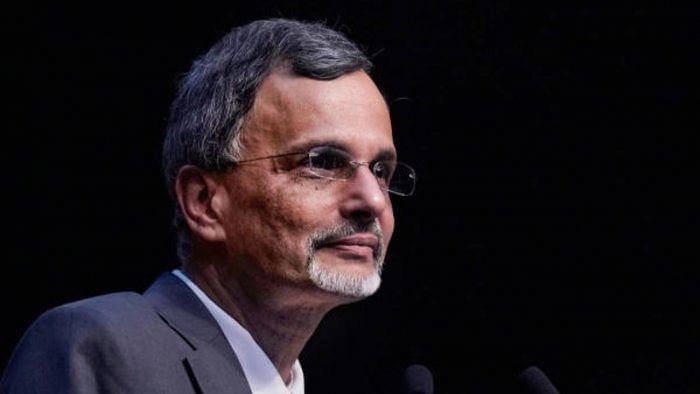
India has the potential to grow at 6.5-7 per cent and will become a $5 trillion economy by 2025-26 and $7 trillion by 2030 depending on exchange rate fluctuation, Chief Economic Advisor (CEA) V Anantha Nageswaran said on Tuesday.
Indian economy is estimated to touch $3.5 trillion mark by March 2023. "Ultimately, our goal is to take the kind of efforts we need to take in terms of policies, in terms of investments, in terms of private sector decisions, and economic outcomes will follow automatically.
"So, $5 trillion is something which can happen by 2025-26 or 2026-27 and USD 7 trillion by 2030, depending on how the dollar-rupee (pair) behaves and what our nominal GDP growth in rupee terms is," Nageswaran told PTI in an interview after the release of the Economic Survey 2022-23 which was prepared by a team led by him.
The Economic Survey was presented by Finance Minister Nirmala Sitharaman in both Houses of Parliament on Tuesday.
If you look at the numbers in the last 30 years, India's GDP in dollar terms has grown at an annual average rate of 9 per cent, he said, adding, that's a very healthy growth rate given the fact the rupee has depreciated these years against the US dollar.
In case the Indian rupee actually appreciates against the US dollar in the next few years as it is quite possible, then India will be in a position to achieve that GDP in dollar terms even higher than 9 per cent, he said.
Also Read | Economy poised to do better; expected to clock 6.5-7% in remaining part of current decade: CEA
"And some of our goals may be reachable within a shorter timeframe than we imagined right now. So, I think achieving a $7 trillion GDP by 2030 is quite feasible," he said.
Talking about the growth rate for the next financial year, he said it has been kept at 6.5 per cent which is realistic and achievable provided external factors don't worsen further.
Observing that the downside risk is higher than the upside, Nageswaran said, "It is good to have a projection that is realistic, strive to exceed that rather than make statements which do not have any margin of safety. Given the kind of environment we have, we need to have a margin of safety in our projections and that is good at risk management as well."
Alluding to challenges faced by India, he said, most of it is because of geopolitical situation and global economic uncertainties.
Talking about inflation, he said, it was a concern in 2022, and the government managed that quite well.
RBI expects inflation to be well behaved and stay within the target band 6 per cent in the coming financial year beginning April, he said, adding, that seems to be a very realistic assumption.